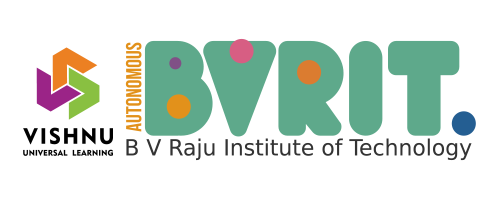Overview.
About Department
The inception of the Master of Technology (M.Tech) program in Data Science at BVRIT College is a significant milestone. The Department of IT at BVRIT was started in 2000 with B.Tech and M.Tech in Data Science is started in 2023 with an intake of 12. This specialized four-semester course is designed to provide students with a profound understanding of core Information Technology concepts, coupled with specialized expertise in the dynamic field of Data Science. With a focus on the seamless integration of diverse techniques and tools, the curriculum empowers students to skillfully extract valuable insights from raw data. The M.Tech program in Data Science at BVRIT College is committed to delivering a robust and forward-thinking education, promising a distinctive amalgamation of theoretical knowledge and hands-on practical skills essential for budding professionals in the realm of data science.
In the realm of academia, Data Science stands as a burgeoning field, delving into the exploration of extracting knowledge from a diverse spectrum of data, encompassing both structured and unstructured formats. This discipline employs scientific methods, systematic procedures, and techniques that draw inspiration from a myriad of disciplines. Graduates in this field are equipped with a multifaceted skill set, encompassing proficiency in Statistics, Data Analysis, Programming Knowledge, Machine Learning, and Business Vision. The department places a strong emphasis on fostering a conducive environment for research, complemented by accomplished instructors who bring extensive teaching and research backgrounds to the table. Further enriching the academic experience, the department actively engages in Industry-Institute collaboration, identifying emerging areas, participating in sponsored research initiatives, and providing valuable consulting services.
Data Science Significance:
Data Science holds immense significance in today’s rapidly evolving technological landscape. It plays a pivotal role in extracting valuable insights and knowledge from vast and diverse datasets, both structured and unstructured. With its foundation in scientific methods, statistical analysis, and advanced algorithms, Data Science enables organizations to make informed decisions, identify patterns, and predict future trends. This interdisciplinary field leverages techniques from Computer Science, mathematics, and domain-specific expertise to tackle complex challenges. As businesses and industries increasingly rely on data-driven approaches, Data Science emerges as a key driver for innovation, efficiency, and competitive advantage, influencing decision-making processes across various sectors.
Program Highlights:
– Core Concepts: This Data Science program covers essential Information Technology concepts while emphasizing data analytics as a core component.
– Engineering and Problem-Solving Skills: The curriculum focuses on developing engineering proficiency and honing problem-solving skills through the application of computational methods.
– Real-World Problem Solving: Students learn principles, tools, and techniques to model various real-world problems, analyze them systematically, and uncover valuable information.
– Decision-Making Support: Candidates are encouraged to suggest solutions that aid decision-making, leveraging suitable data visualization techniques for effective communication.
– Practical Application: Design assignments and projects are integral to each semester, providing hands-on experience and practical application of learned skills.
– Career Prospects: The program ensures bright career prospects, offering placements and internship opportunities to equip students with valuable industry exposure.
Importance of Data Science:
Data Science plays a pivotal role in the contemporary landscape, serving as a linchpin for societal advancement and employment opportunities. In our data-centric world, organizations lean on the field to distill actionable insights from extensive datasets, facilitating well-informed decision-making. The capacity to scrutinize and interpret data emerges as an essential competency across various domains, spanning healthcare, finance, technology, and beyond. As businesses increasingly harness the power of data for a competitive edge, the demand for adept data scientists is on a steady rise. Mastery of data science not only unlocks a diverse array of career pathways but also empowers individuals to meaningfully contribute to unraveling intricate challenges and propelling innovation in our interconnected society.
1
Program offered
20
Faculty members
1000+
Students graduated
1000+
Research papers
Programs Offered
M.Tech in Data Sciences
12
Intake
Vision
To produce employable graduates, world class entrepreneurs with ethics and social responsibilities in Information Technology solutions and Information Technology Enabled Services (ITES).
Mission
M1: To offer high quality graduate and post graduate programs in Information Technology education and to prepare students for professional career and higher studies globally.
M2: To promote excellence in research & consultancy in IT solution and ITES with use of state of the art technology.
M3: To develop self learning abilities and professional ethics to serve the society.
Programme Educational Objectives:
The Program Educational Objectives (PEOs) of Information Technology Engineering UG Course in IT Department BVRIT are:
PEO1: Excel in professional career and in higher education by acquiring knowledge in mathematical, computing and engineering principles
PEO2: Analyze real life problems, work in multi-disciplinary teams, design Software Systems appropriate to its solutions that are technically sound, economically feasible and socially acceptable.
PEO3: Exhibit professionalism, ethical attitude, communication skills, team work in their profession
and adapt to current trends by engaging in lifelong learning
Programme Outcomes:
PO1: Engineering Knowledge: Apply the knowledge of mathematics, science, engineering fundamentals, and an engineering specialization to the solution of complex engineering problems.
PO2: Problem Analysis: Identify, formulate, research literature, and analyze complex engineering problems reaching substantiated conclusions using first principles of mathematics, natural sciences, and engineering sciences.
PO3: Design/Development of Solutions: Design solutions for complex engineering problems and design system components or processes that meet the specified needs with appropriate consideration for the public health and safety, and the cultural, societal, and environmental considerations.
PO4: Conduct Investigations of Complex Problems: Use research-based knowledge and research methods including design of experiments, analysis and interpretation of data, and synthesis of the information to provide valid conclusions.
PO5: Modern Tool Usage: Create, select, and apply appropriate techniques, resources, and modern engineering and IT tools including prediction and modeling to complex engineering activities with an understanding of the limitations.
PO6: The engineer and society: Apply reasoning informed by the contextual knowledge to assess societal, health, safety, legal and cultural issues and the consequent responsibilities relevant to the professional engineering practice.
PO7: Environment and sustainability: Understand the impact of the professional engineering solutions in societal and environmental contexts and demonstrate the knowledge of, and need for sustainable development.
PO8: Ethics: Apply ethical principles and commit to professional ethics and responsibilities and norms of the engineering practice.
PO9: Individual and Team Work: Function effectively as an individual, and as a member or leader in diverse teams, and in multidisciplinary setting.
PO10: Communication: Communicate effectively on complex engineering activities with the engineering community and with society at large, such as, being able to comprehend and write effective reports and design documentation, make effective presentations, and give and receive clear instructions.
PO11: Project Management and Finance: Demonstrate knowledge and understanding of the engineering and management principles and apply these to one’s own work, as a member and leader in a team, to manage projects and in multidisciplinary environments.
PO12: Life-long learning: Recognize the need for, and have the preparation and ability to engage in independent and life-long learning in the broadest context of technological change.
Programme Specific Outcomes:
PSO1: Adaptability of Cutting Edge Technologies: Ability to understand of best development and administrations practices for Social, Cloud, Data Analytics and Mobility applications.
PSO2: Scope of Entrepreneurship: Ability to identify of problems and development of solutions in order to make innovative products.










